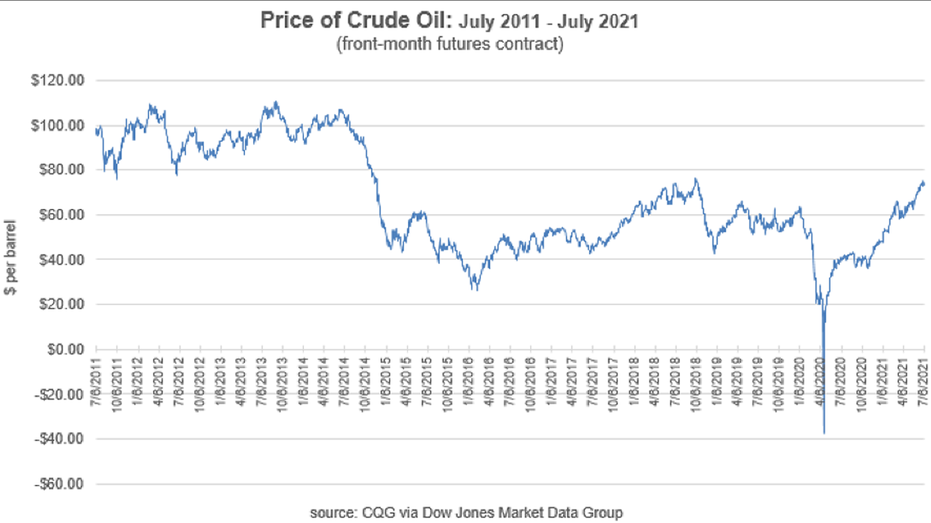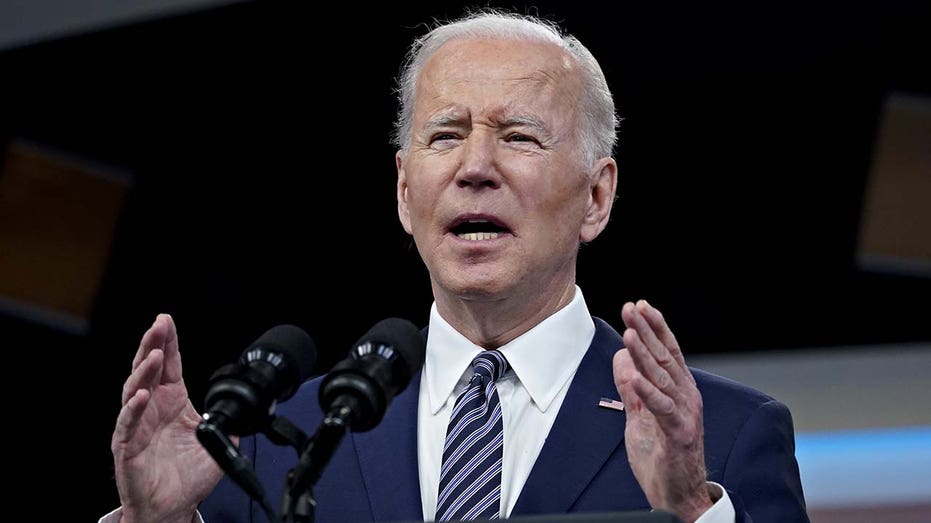National security expert: Biden must revive Trump’s 'energy dominance' to put Putin in his place
'It’s not just energy independence, it’s energy dominance,' McFarland told Fox News Digital
Can the market overcome this pain?
Gary Kaltbaum and Sarah Ponczek provide insight on the stock market and declining sentiment on 'Making Money.'
EXCLUSIVE: Foreign policy expert and former Trump adviser K.T. McFarland says then-President Trump's strategy for global "energy dominance" made Putin too weak to invade Ukraine and it’s not too late for Biden to use the same tactics.
K.T. McFarland, who has served in the White House under four different presidents, including as Deputy National Security Adviser during the first few months of the Trump administration, says the former executive’s strategy of ramping up U.S. energy production effectively drove down the price of oil low enough that oil-producing nations like Russia could not afford to invade neighboring countries like Ukraine.
"If you look at 50 years of Russian history, every time oil prices are low, the Russians hunker down," McFarland told Fox News Digital. "Every time they're high, the Russians rebuild their military, they fight proxy wars, they invade countries."
"A year and a half ago when oil was $40 a barrel, [Putin] didn't have the money to launch an invasion," McFarland said.

President Donald Trump speaks in the East Room of the White House, early Wednesday, Nov. 4, 2020, in Washington. (AP Photo/Evan Vucci / AP Newsroom)
Under former President Trump, the price of crude oil fell to below $25 per barrel and averaged $52.99 per barrel. Under President Biden, the price has skyrocketed from $53.25 per barrel when he assumed office to a high of $123.70 per barrel and closed at $92 per barrel on February 24, the day that Putin invaded Russia. At the time this article was written, the price of oil was approximately $104.
McFarland claims Biden’s "war on fossil fuels" has severely hindered U.S. energy production and is responsible for emboldening Putin by enriching Russia’s economy which is based primarily on foreign trade of oil and gas.
"All of a sudden, Putin’s coffers have doubled, tripled," McFarland said.
McFarland, who also served in the administrations of Presidents Nixon, Ford and Reagan and worked as an aide to geopolitical expert Henry Kissinger, said that while she believes the price of oil was the primary catalyst in Putin’s decision to invade Ukraine, a "fractured NATO" under Biden and the administration’s perceived "weakness" also played a role.
"It’s the same people in the Biden administration who were in the Obama administration when [Putin] took Crimea," McFarland said, considering Putin’s invasion of Ukraine a "continuation" of his 2014 annexation of the newly formed Republic of Crimea.

Chart shows price of crude oil from July 2011 to July 2021. (CQG via Dow Jones Market Data Group)
Over the two months that Putin spent maneuvering in the Crimea region, the average price of crude oil was $100.59 per barrel, similar to where it stands today.
Although other factors may have contributed to Putin’s ultimate invasion of Ukraine, McFarland believes adopting energy policies similar to that of the Trump administration is the winning strategy to deter the Russian president.
HOW MUCH COULD GAS COST TRAVELERS THIS SUMMER?
While the U.S. and many of its allies have suspended normal trade relations with Russia, countries like Germany failing to cut ties entirely with Russian oil has made sanctions against Putin not nearly as effective, according to McFarland.
"It’s not just energy independence, it’s energy dominance," McFarland explained to Fox News Digital.

U.S. President Joe Biden speaks about reducing energy prices in the Eisenhower Executive Office Building in Washington, D.C., U.S., on Thursday, March 31, 2022. (Photographer: Al Drago/Bloomberg via Getty Images / Getty Images)
Currently, under the Biden administration, McFarland says "it takes longer to get a permit to build a liquefied natural gas terminal than it takes to actually build one."
The foreign policy expert says the Biden administration needs to "cut the red tape" that U.S. energy producers currently face and unleash American natural resources back into the global economy to compete with Kremlin exports.
GERMANY DROPS OPPOSITION TO RUSSIA OIL EMBARGO: REPORT
This strategy, according to McFarland, will not only serve to deter Putin from invading other countries, but also prevent leaders of other oil-rich nations from becoming aggressive, namely in the case of Iran and its decades-long proxy conflict with U.S. ally Israel.
If the Biden administration fails to increase U.S. energy production, McFarland anticipates Putin will continue fighting, possibly moving west to seize Moldova or another country outside of NATO’s protection.
GET FOX BUSINESS ON THE GO BY CLICKING HERE
McFarland, who wrote her dissertation at the Massachusetts Institute of Technology on nuclear confrontation, said she believes this will become a "frozen conflict" that will not advance to the use of nuclear weapons, but warns that one should still never underestimate the possibility for destruction when a nuclear-capable country "gets desperate enough."





















